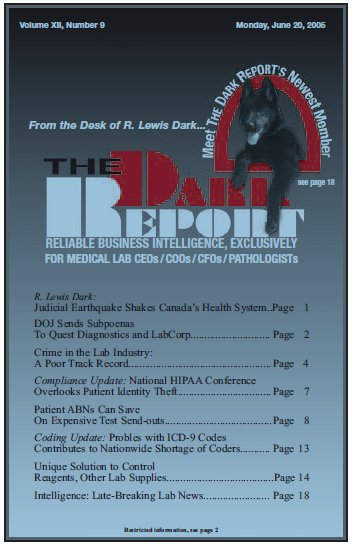IN APRIL, SEVERAL THOUSAND PRIVACY OFFICERS and HIPAA compliance officers gathered in New Orleans for the Health Care Compliance Association’s (HCCA) “2005 Compliance Institute.” THE DARK REPORT was in attendance to learn about new issues and concerns for provider compliance with HIPAA (Health Insurance and Accountability Act). There was one notable observation. Collectively, the healthcare …
National HIPAA Conference Overlooks Patient ID Theft Read More »
To access this post, you must purchase The Dark Report.


